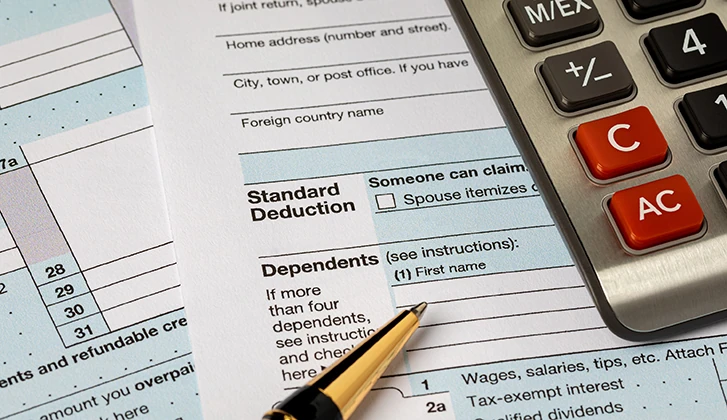NOTICE: Internet Explorer was retired by Microsoft on June 15th, 2022 and is no longer supported. This could change how you access Online Banking.
7 Ways to Improve Your Credit Score

Invest in yourself and get started on improving your creditworthiness and credit score.
Applications for credit cards, loans, and apartment rentals appear on your credit report as a hard inquiry and can lower your credit score.
Achieving and maintaining a good credit score makes all the difference in qualifying for loans and a mortgage, getting a better rate on a car loan and car insurance, and so much more. But building a good credit score takes time and sound fiscal management. If your credit score has taken a hit or you want to improve it before moving forward with a big purchase like a house, here are some ways to get that score trending upward.
1. Get Current on All Your Bills
If you are behind on any bills, you must get those current. If a bill is more than 30 days past due, call the company and ask to work out a payment plan. Send your new payments in on time and stick to it until you’re caught up. Paying on time, every time shows a positive payment history, which goes a long way toward improving your credit score.
2. Don’t Move Debt From Card to Card
Transferring high-interest balances to a new card could help you save money and pay down debt. But if you’re caught in a cycle of doing this year in, year out, you can hurt, not help, your credit score. This is particularly true if you continue to use the old cards to rack up more debt. Instead, pay down your balances and keep them below 30% of your limits.
3. Keep Old Credit Card Accounts Open
If you have credit cards you aren’t using or pay off balances and expect to keep those balances at zero, don’t close the accounts. Doing so can reduce the amount of available credit and increase your utilization ratio. That will ding your credit score. Instead, keep old credit cards open and put them away for safekeeping.
4. Request a Higher Credit Limit
If your income has increased and you have a few years of good credit established with your credit card issuer, request a higher credit limit. By increasing your credit limit but keeping your use the same, you’ll lower your overall credit utilization, impacting your credit score for the better.
5. Don’t Open Several New Credit Card Accounts at the Same Time
Credit card sign-up promotions and bonus offers are tempting. But be careful – signing a new credit card application results in a hard inquiry on your credit report, which can lower your credit score. Several new applications at one time result in multiple hard inquiries that can lower your credit score further. A good rule of thumb: don’t open up credit cards you don’t need.
6. Shop for One Loan at a Time
It’s best to shop for only one type of loan at a time. If you apply for a personal loan, a car loan, and a mortgage at the same time, all those applications will appear on your credit report at the same time. Each will result in a temporary drop in your credit score that could last a year.
7. Check Your Credit Report
Your credit report – the summary of how you handle your credit accounts like loans and credit cards – influences your credit score. By checking your credit report several times a year, you will know exactly what lenders will see about your creditworthiness, and you can catch any inaccuracies. You can receive a free copy of your credit report for each of the three nationwide credit bureaus by visiting annualcreditreport.com.
Invest in yourself and get started on improving your creditworthiness. Contact your financial institution for help with managing credit and improving your credit score.
Content is for informational purposes only and is not intended to provide legal or financial advice. The views and opinions expressed do not necessarily represent the views and opinions of WesBanco.
While we hope you find this content useful, it is only intended to serve as a starting point. Your next step is to speak with a qualified, licensed professional who can provide advice tailored to your individual circumstances. Nothing in this article, nor in any associated resources, should be construed as financial or legal advice. Furthermore, while we have made good faith efforts to ensure that the information presented was correct as of the date the content was prepared, we are unable to guarantee that it remains accurate today.
Neither Strategy Academy nor its sponsoring partners make any warranties or representations as to the accuracy, applicability, completeness, or suitability for any particular purpose of the information contained herein. Strategy Academy and its sponsoring partners expressly disclaim any liability arising from the use or misuse of these materials and, by visiting this site, you agree to release Strategy Academy and its sponsoring partners from any such liability. Do not rely upon the information provided in this content when making decisions regarding financial or legal matters without first consulting with a qualified, licensed professional.



